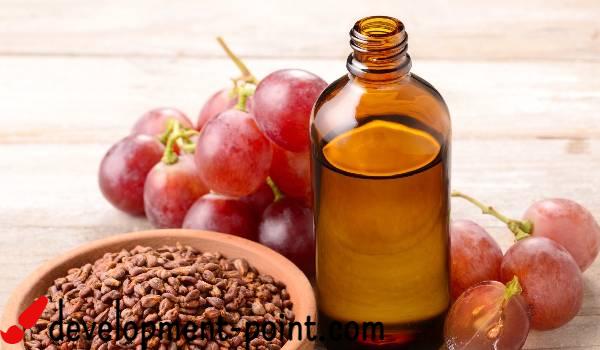Hand eczema: the most important symptoms, causes and how to treat
Hand eczema is an inflammatory skin condition in which sufferers experience reddening of their skin as well as itching. In this article, we will talk about what are the causes of hand eczema, what are its symptoms, and methods of herbal treatment?
Types of hand eczema
Types of hand eczema vary depending on the cause, and include:
- Irritant Eczema: It occurs when you come into contact with something that irritates the skin, such as dust or chemicals, and you might get it after washing your hands often.
- Allergic Eczema: It is caused by an allergic reaction to something around you, such as: perfumes, rubber, and some plants.
- Dyshidrotic dermatitis (Pompholyx Eczema): It causes itchy, watery blisters, usually on the palms of your hands and the sides of your fingers.
Hand eczema for housewives
Housewives’ Eczema is common among women who use their hands regularly during cleaning tasks inside the house.
The reason for its common occurrence among housewives is due to the continuous exposure of hands to water and chemicals present in cleaning tools, but housewives’ eczema is not contagious; That is, the disease cannot be transmitted to and from others.
Hand eczema for children
Hand eczema is a common condition in children, and this happens because of the dry and sensitive skin type that children inherit. It may also be caused by skin contact with soap, shampoo, or other irritating substances.
In addition, about 30% of children suffer from severe eczema due to food allergy. Therefore, any child with hand eczema who suspects an allergic cause should be referred for a patch test.
Symptoms of hand eczema
You may notice the following symptoms when you have eczema on your hands:
- feeling pain
- burning sensation
- Dryness and peeling of the skin.
- swelling
- Deep cracks in the skin.
- blisters
- skin bleeding
- Red or dark spots on the skin.
Causes of eczema on the hand
When a person touches something that can irritate the skin, the immune system mounts an inflammatory response. They cause itching and redness.
Scientists have not yet been able to determine the cause behind the occurrence of eczema, but some researchers believe that it could be caused by genes and environmental factors, which can lead to inflammation that results in an allergic reaction.
Some possible causes of hand eczema include:
1. Chemicals and irritants
People who come into contact with detergents, soaps, and cement are more likely to develop hand eczema. This type of eczema is common in people who work in hairdressing, catering, construction, and engineering.
2. Water
According to the American Academy of Dermatology (AAD), anything can irritate the skin and cause eczema, so people who wash and dry their hands frequently may be more likely to develop hand eczema.
Even when a person dries their hands, some water remains on the skin. When this water evaporates, it reduces the skin’s natural oils. Using hot water when washing hands may also lead to reduced essential oils, which in turn can also lead to eczema on the hands.
3. Stress
When a person is stressed, the body produces two hormones, cortisol and epinephrine, which suppress the immune system and lead to dermatitis.
Sometimes, high levels of stress can lead to dyshidrotic eczema, a common form of hand eczema that causes itchy blisters on the skin.
4. Sweating
Sweat contains minerals that can irritate the skin, such as sodium, lead, nickel, and magnesium. So when the sweat doesn’t dry out completely, the high temperatures can cause itching which in turn can lead to eczema.
5. Allergies to certain foods
Some foods can cause allergic reactions in the body, which leads to the appearance of eczema on the hands.
These include the following foods:
- Dairy products, such as milk.
- eggs.
- Nuts.
- Wheat.
- soy products.
6. Cold temperatures and drought
Dry air and sudden temperature changes in winter can lead to dry skin, which helps eczema flare up.
Hand eczema treatment
There is no cure for hand eczema yet, though doctors usually suggest a treatment plan based on the individual’s age, symptoms, and medical history. The treatment plan that doctors may recommend for people with hand eczema includes the following:
Hand eczema treatment with medication
It includes the following:
- Topical creams: Some people may use topical corticosteroids as a type of hand eczema cream with moisturizers. To help treat hand eczema, follow label directions when using; They may lead to unwanted side effects, such as skin thinning.
- Antibacterial ointments: It is effective in treating infections and can be used on cuts and broken skin.
- Calcineurin inhibitors: People may feel a burning sensation after applying it to the affected area.
- Antihistamine tablets: People can take antihistamines to treat eczema, but it is best to take them before going to bed. It may cause drowsiness.
- Topical antibiotics: These can treat open cracks and bacterial infections, but it is safe to follow your doctor’s recommendations before applying the product to the skin.
- Tretinoin medication: It belongs to a group of medicines called retinoids, which also includes others, such as retinol and acitretin. These drugs are vitamin A derivatives.
Treating hand eczema with ultraviolet light (UV)
Moderate hand eczema in both children and adults can be treated by exposing the skin to ultraviolet (UV) rays. This treatment helps reduce itching and inflammation.
However, people may need to visit their doctor’s office for a month or two to improve their skin condition.
You can learn more about UV damage and how to avoid it by reading our article on UV damage.
Hand eczema treatment with herbs and natural methods
The following natural remedies may also help treat some of the symptoms associated with hand eczema:
- Applying wet compresses: This may reduce inflammation and prevent scratching.
- Putting aloe vera gel on the affected area: Aloe vera possesses anti-bacterial and anti-microbial properties. A study has found that it is effective in aiding the wound healing process.
- Use of honey: Some studies have reported that honey helped reduce lesions caused by eczema, plus it can help treat burns and cuts as well.
- Moisturizing the skin regularly: Moisturizers prevent irritants from coming into contact with the skin. People may also use it to prevent bacterial infection.
- Use of coconut oil: Coconut oil contains lauric acid, which can fight bacteria and viruses. So it accelerates healing and provides relief, in addition to that it may be used as a moisturizer to reduce the chance of infection.
- Use of sunflower seed oil: People may put sunflower seed oil on their skin; it contains anti-inflammatory properties. It is effective in retaining moisture when applied to wet skin, preferably after showering.
- Oatmeal baths: A study indicates that the use of oatmeal protects the skin for long periods, it reduces skin itching and discomfort, and it is effective in treating psoriasis.
- Adding fish oil to the diet: A study found that fish containing omega-3 fatty acids can soothe dermatitis, such as salmon and sardines.
How to prevent hand eczema
- Wear gloves when washing dishes.
- Use mild soaps and detergents without perfumes.
- Use Vaseline to protect the skin.
- use cotton gloves in winter; To prevent dry and cracked skin.
- Apply moisturizer after washing hands.
- using a humidifier at home; To prevent skin dryness and itching.
- Avoid hot baths.
- apply sunscreen before going out; To protect exposed skin.
- Drink water to stay hydrated.
- Eat anti-inflammatory foods, such as vegetables, fish, beans, and leafy greens.
Frequently Asked Questions
Is hand eczema contagious?
Hand eczema is not contagious, but in the case of eczema, the skin can become infected easily.
What is the relationship of collagen pills to irritation of hand eczema?
Collagen pills play a role in fighting infectious bacteria of the skin, in addition to the fact that collagen reduces the roughness and dryness of the skin. This is important in the prevention and treatment of hand eczema.

